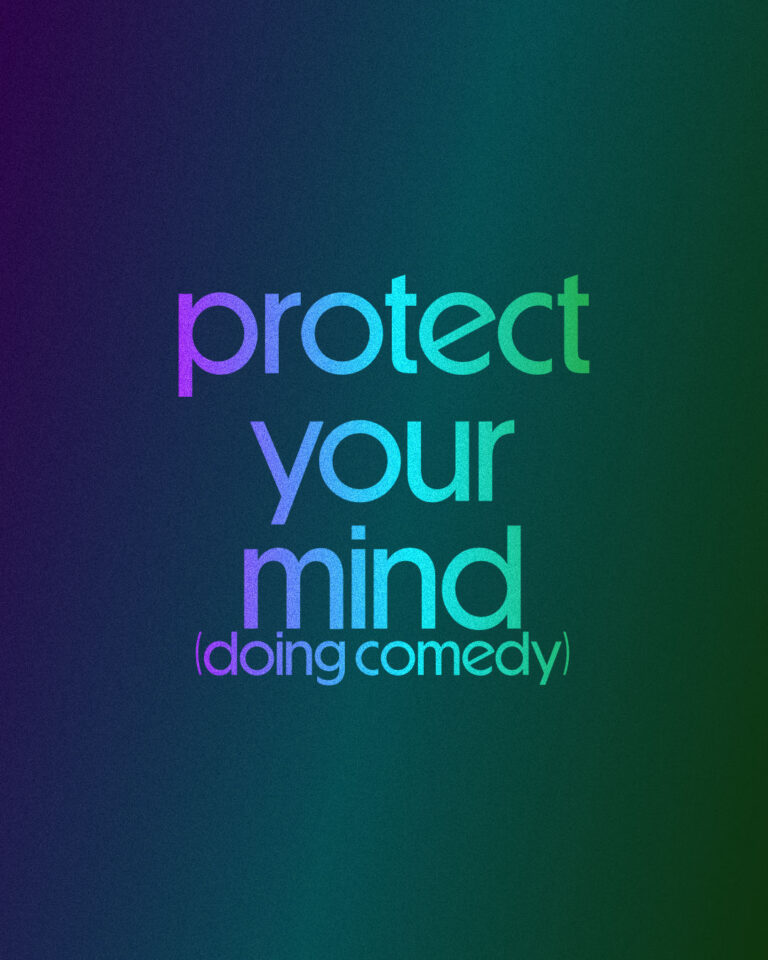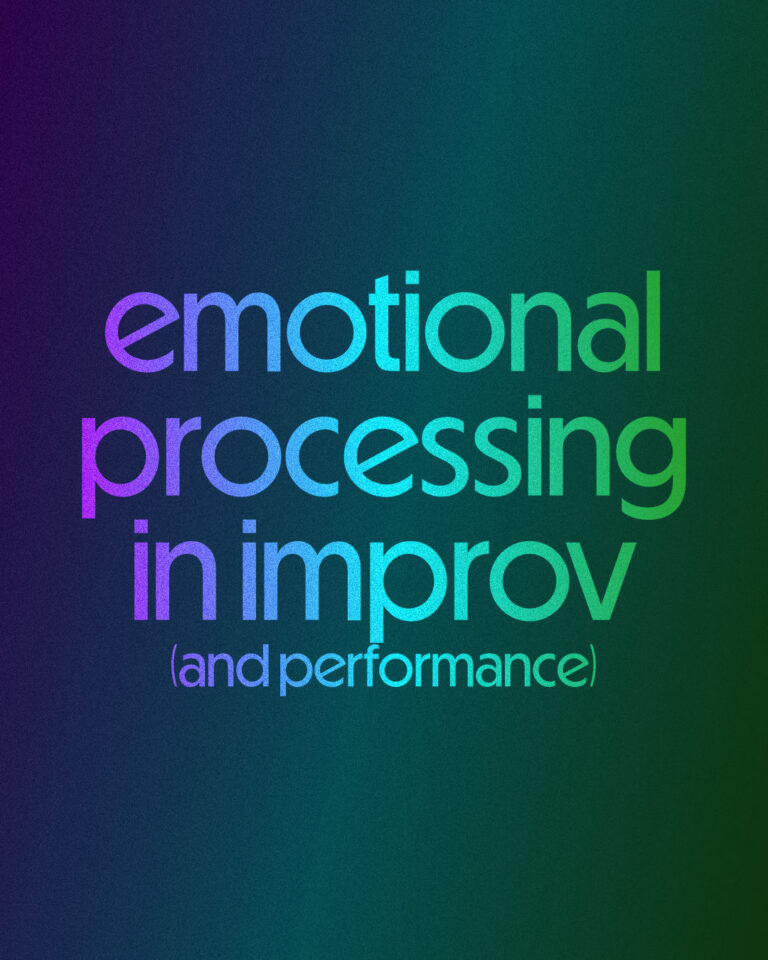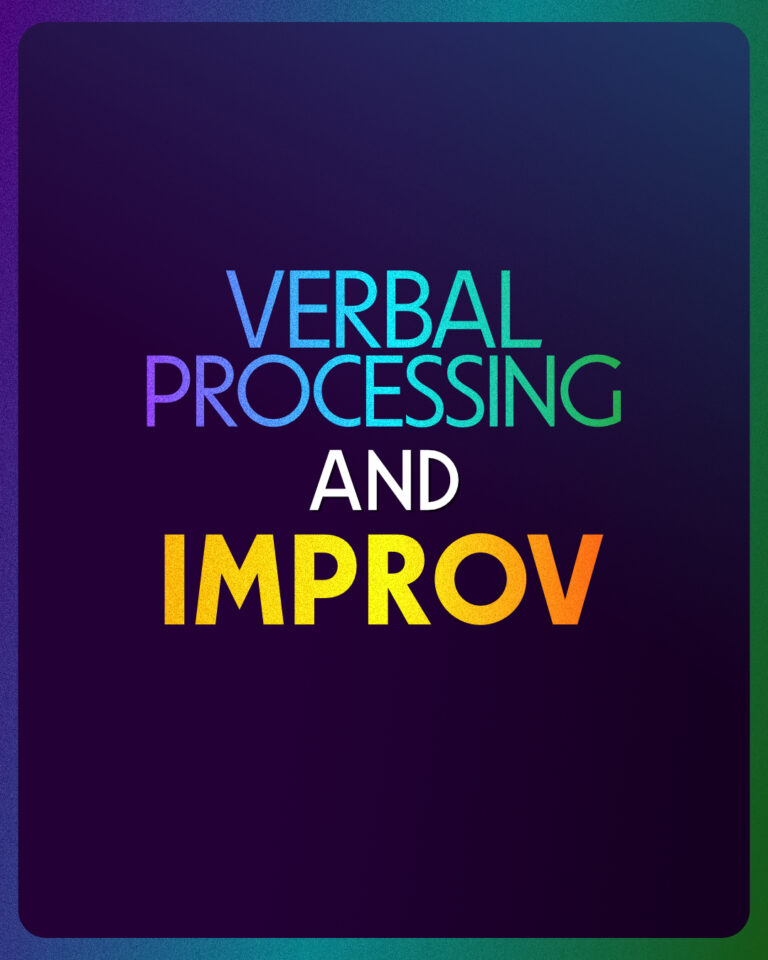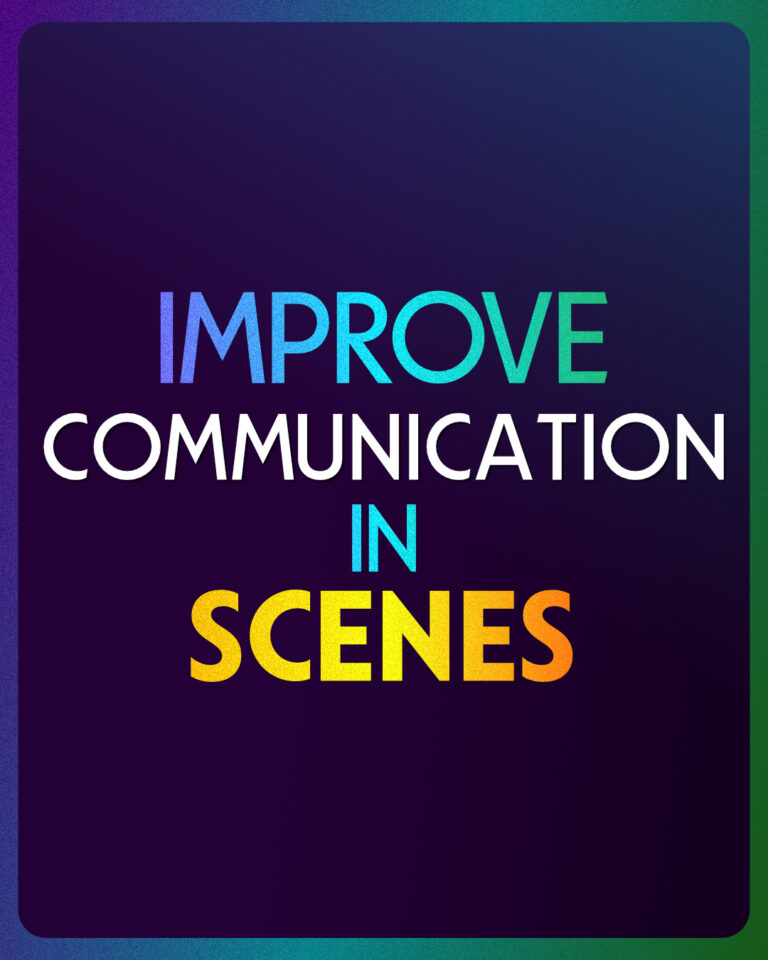
Literally about literalism in improv & comedy

Looking at how a common neurodivergent trait, literalism, affects our writing and scenes. This article includes a special nod to improv.

Articles about learning and performing improv comedy.

Looking at how a common neurodivergent trait, literalism, affects our writing and scenes. This article includes a special nod to improv.

We love them or hate them, but even studies show they can make spaces more creative and beneficial for most. Here are a few more ideas to adjust these games to better support diverse neurotypes.

Ten suggestions to help you protect yourself while doing comedy and participating in our communities. YOU deserve compassion & respect no matter where you are with mental health or your neurotype.

Icebreakers. They're common in an acting class, at the top of an improv jam, or maybe when a team or cast is just getting to know each other. Some people love 'em, some people hate 'em.

If you improvise with or teach more than 10 people, you've probably done improv with someone that experiences alexithymia. Learn to support yourself or others when working with emotions in scenes.

Verbal processors do so to learn and understand new concepts and idea. But what about when they're improvisers.

Getting notes and giving notes - and having them understood by everyone - can be difficult when there is a communication gap between neurotypes

Improvising plot-driven sets might not come quite as naturally to bottom-up thinkers. Figure out the type of thinker you are, and learn how it affects your improv and acting practice

Using visual imagination can help your improv scenes, but also help you remember details better. Part 2 of Ep. 10: Hyperphantasia, Visual Imagination & Improv.

It's hard to notice the unusual at the top of an improv scene. Learn when and how to do it! Even if you're unusual too, like me! For EVERYONE: how to communicate better with your scene partners.